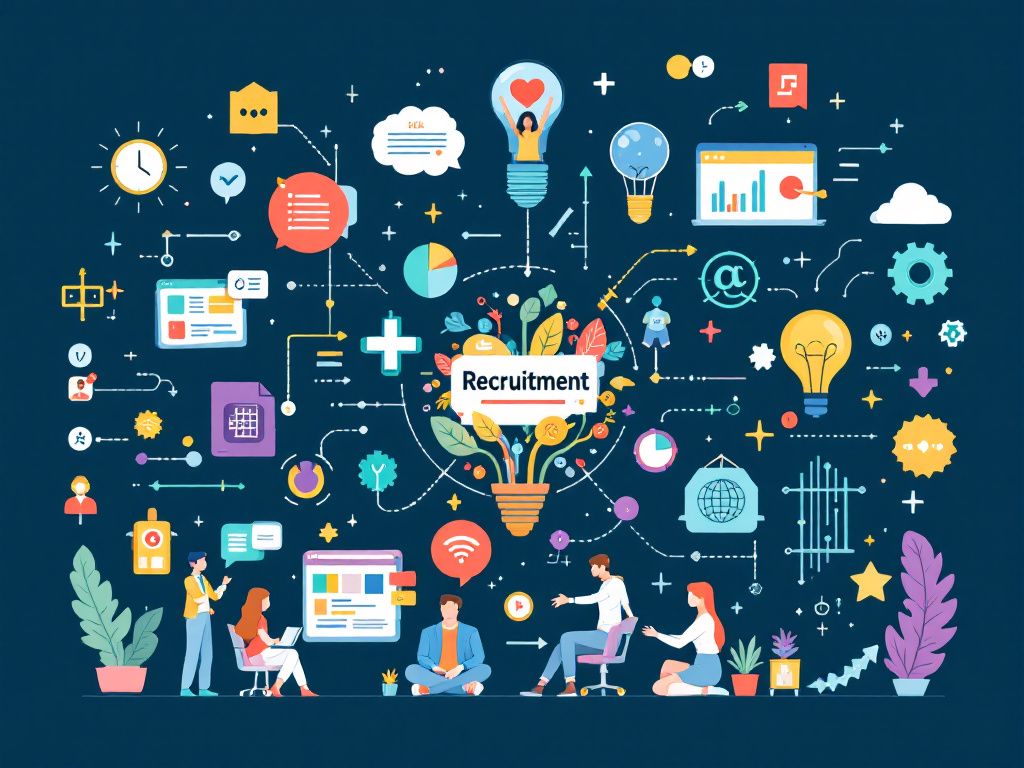The Importance of Soft Skills: How to Assess Candidates Beyond Their Resumes

The Importance of Soft Skills: How to Assess Candidates Beyond Their Resumes
The recruitment landscape is constantly evolving, and as we navigate through these changes, one fact remains clear: skills alone are no longer sufficient for success in the workplace. As employers seek to build cohesive teams and foster productivity, the focus has shifted toward soft skills—the personal attributes that enable individuals to interact effectively and harmoniously with others. But how do we assess these valuable traits during the hiring process?
What Are Soft Skills?
Soft skills are often described as the interpersonal skills required to effectively communicate, collaborate, and problem-solve in the workplace. Examples include:
- Communication: The ability to articulate thoughts clearly and listen actively.
- Teamwork: Working well with others to achieve common goals.
- Problem-solving: Thinking critically and creatively to navigate challenges.
Unlike hard skills, which are specific and measurable, soft skills are often intangible and less quantifiable. Yet, they hold increasing importance as employers recognize their influence on overall workplace dynamics. According to a study by Business New Daily, 93% of employers consider soft skills to be a critical factor in their hiring decisions.
Why Are Soft Skills Crucial in Recruitment?
Soft skills are essential for several reasons:
- Their impact on team dynamics fosters a positive work environment.
- They significantly contribute to employee retention and satisfaction—valued employees tend to stay longer when they work well with their colleagues.
- Soft skills enhance customer service and client relationships, paving the way for business success.
- Adaptability and resilience are key in today’s ever-changing business landscape, where rapid shifts demand quick learning and adjustments.
Strategies to Assess Soft Skills During Recruitment
To effectively evaluate a candidate's soft skills, recruiters can utilize various strategies:
- Behavioral Interviews: Use situational questions that prompt candidates to share how they navigated past challenges.
- Role-playing Scenarios: Set up real-life situations for candidates to respond to, giving insight into their thought processes and interpersonal skills.
- Group Exercises: Evaluate candidates’ teamwork and collaboration abilities by observing their interactions in group settings.
- Innovative Assessment Tools: Incorporate personality assessments or simulations that gauge soft skills effectively.
- Team Feedback: Involve potential team members in the evaluation process to gather diverse perspectives on a candidate's soft skills.
Incorporating Soft Skills into Your Hiring Process
To create a recruitment process that prioritizes soft skills:
- Craft job descriptions that emphasize the importance of soft skills alongside hard skills.
- Train recruiters on how to identify and assess soft skills effectively.
- Develop interview questions focusing on past experiences that demonstrate soft skills.
- Implement a structured evaluation framework to rate candidates on their soft skills.
Real-world Examples
Many organizations have reaped the benefits of prioritizing soft skills during recruitment:
- Case Studies: Companies like Google have emphasized soft skills in their hiring, leading to enhanced collaboration and innovation..
- Success Stories: Employees with strong soft skills have shown remarkable adaptability, ensuring smooth transitions during company restructuring.
- Challenges Faced: Organizations that neglect soft skills in their recruitment often experience high turnover rates and poor team cohesion.
- Lessons Learned: Companies integrating soft skills into their hiring processes report improved performance and employee morale, as highlighted in a study by the Forbes Human Resources Council.

Final Thoughts
In today’s competitive job market, soft skills are not just a nice-to-have—they are essential for a harmonious and productive workplace. Recruiters should adopt a holistic approach to evaluating candidates, recognizing that the best talent is often characterized by their ability to collaborate, adapt, and communicate effectively. By putting focus on soft skills in the hiring process, organizations will pave the way for a more engaged and successful workforce.
Let’s start reassessing our hiring practices and build a workplace where soft skills thrive, leading to greater teamwork and collaboration. After all, the heart of a successful organization lies in its people.